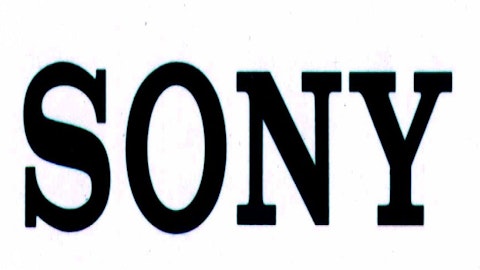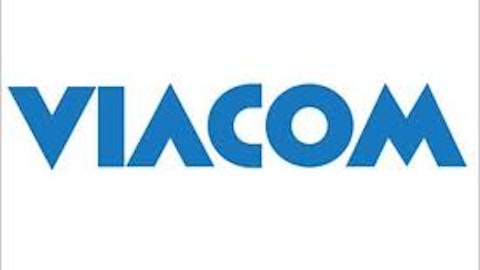Recently, billionaire Dan Loeb, the famous hedge fund manager, has boosted his stake in Sony Corporation (ADR) (NYSE:SNE), from 64 million to around 70 million shares, via both direct ownership and cash-settle swaps, accounting for around 6.9% stake in the company. Since the beginning of the year, Sony Corporation (ADR) (NYSE:SNE) stock has increased 93.30%, beating the S&P 500’s return of only 13.30%. Let’s take a closer look to determine whether or not investors should follow Dan Loeb into Sony Corporation (ADR) (NYSE:SNE).
Two steps to unlock potential shareholders’ value
Sony Corporation (ADR) (NYSE:SNE) operates in many business segments including Consumer Products & Services, Professional, Device & Solutions, Pictures, Music, Financial Services and Sony Corporation (ADR) (NYSE:SNE) Mobile. Interestingly, the two biggest revenue contributors for Sony Corporation (ADR) (NYSE:SNE), Consumer Products & Services and Professional, Device & Solutions segment, were generating losses in 2012. The most consistent positive operating income businesses were Pictures, Music and Sony Mobile, contributing ¥34.1 billion ($341 million), ¥36.9 billion ($369 million) and ¥31.7 billion ($317 million), respectively, in operating profits.
Activist investor Dan Loeb is interested in Sony because he thought that the separation of the two businesses in Sony could unlock the potential shareholders’ value, driving the company’s share price much higher. He laid out two main important steps for value enhancement: first was to list Sony Entertainment; the second was to focus on industry-leading businesses for the future growth of Sony Electronics.
He mentioned that Sony should bring around 15% to 20% stake in Sony Entertainment public, so that the Sony Entertainment’s high profitability with good asset in TV and motion picture production could be recognized by the general market. In addition, Sony Entertainment’s management could have incentive to grow the business they manage.
Dan Loeb thought that Sony could issue the subscription right to current shareholders, not through a standard IPO or spinoff, to secure the best interest of Sony’s current investors. He said that he was ready to “backstop” the IPO with around $1.5 billion to $2 billion.
If Sony Entertainment could deliver the same margin with its U.S. peers, its EBITDA could experience an upside of around 50%. Sony is trading at $21.70 per share, with the total market cap of more than $21.9 billion. The market values Sony quite cheaply, at only 4.62 times its trailing EBITDA (earnings before interest, taxes, depreciation and amortization) and only 80% of its book value.
The cheapest price-to-book ratio valuation
Compared to its Japanese peers including Sharp Corporation (ADR) (OTCMKTS:SHCAY) and Panasonic Corporation (ADR) (OTCMKTS:PCRFY), Sony has the lowest price-to-book ratio among the three companies.
Sharp Corporation (ADR) (OTCMKTS:SHCAY) is trading at $4.20 per share, with the total market cap of $4.8 billion. The market values Sharp Corporation (ADR) (OTCMKTS:SHCAY) at as much as 3.1 times its book value. The company is one of the biggest global players in TVs, mobile handsets and LCD related business.
Looking forward, Sharp plans five main strategies for the company including business portfolio restructuring, profitability improvement in the LCD business and cost reduction. It also seeks to enter different industries via strategic partnerships.
Recently, it had a basic agreement with Makita Corporation, the electric power tools maker, to expand its business from homes to premises. For the full fiscal year 2014, Sharp expected to produce $2.16 billion in EBITDA in 2014. Consequently, Sharp’s 2014 EBITDA multiple would stay at 7.12.
Panasonic Corporation (ADR) (OTCMKTS:PCRFY) also had a higher price-to-book value than Sony. At $8.20 per share, Panasonic Corporation (ADR) (OTCMKTS:PCRFY) is worth $18.90 billion. The market values Panasonic at 4.23 times its trailing EBITDA and 1.18 times its book value.
Panasonic is also one of the Japanese powerhouses, operating in several businesses including AVC Networks, Appliances, Eco Solutions, Industrial Devices and Automotive & Industrial Systems.
Looking forward, in 2016, Panasonic intended to generate more than ¥350 ($3.49) billion in operating profit with the operating margin of more than 5%. The total cumulative free cash flow in 2014-2016 period could reach more than ¥600 ($5.98) billion. In order to reach that goal, the company will execute the business restructure, eliminating unprofitable business in the next two years, spending around ¥250 ($2.49) billion.
My Foolish take
Sony, with the highly profitable entertainment business, could unlock potential shareholders’ value by taking Dan Loeb’s two-step advice. Dan Loeb has also recently called for “semi-dependent governance structure,” with a separate board of directors for Sony Entertainment.
Personally, I think Sony is a good stock to hold in a long run, with its global leading position in both electronics and entertainment business, a low valuation and an activism catalyst for potential upside in its share price.
The article Investing in Sony With Dan Loeb originally appeared on Fool.com is written by Anh Hoang.
Anh HOANG has no position in any stocks mentioned. The Motley Fool has no position in any of the stocks mentioned. Anh is a member of The Motley Fool Blog Network — entries represent the personal opinion of the blogger and are not formally edited.
Copyright © 1995 – 2013 The Motley Fool, LLC. All rights reserved. The Motley Fool has a disclosure policy.





